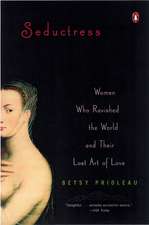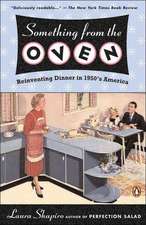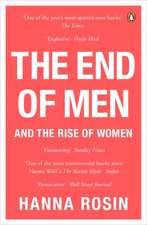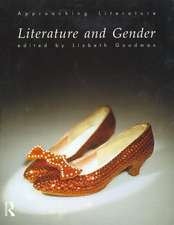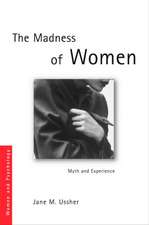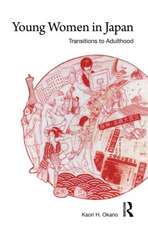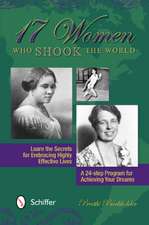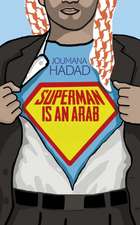A Philosophical Investigation of Rape: The Making and Unmaking of the Feminine Self: Routledge Research in Gender and Society
Autor Louise Du Toiten Limba Engleză Hardback – 15 apr 2009
| Toate formatele și edițiile | Preț | Express |
|---|---|---|
| Paperback (1) | 436.87 lei 6-8 săpt. | |
| Taylor & Francis – 3 feb 2012 | 436.87 lei 6-8 săpt. | |
| Hardback (1) | 850.91 lei 6-8 săpt. | |
| Taylor & Francis – 15 apr 2009 | 850.91 lei 6-8 săpt. |
Din seria Routledge Research in Gender and Society
- 5%
 Preț: 307.44 lei
Preț: 307.44 lei -
 Preț: 384.85 lei
Preț: 384.85 lei -
 Preț: 148.25 lei
Preț: 148.25 lei -
 Preț: 310.45 lei
Preț: 310.45 lei -
 Preț: 278.93 lei
Preț: 278.93 lei - 9%
 Preț: 1003.31 lei
Preț: 1003.31 lei -
 Preț: 312.34 lei
Preț: 312.34 lei - 8%
 Preț: 389.00 lei
Preț: 389.00 lei -
 Preț: 311.41 lei
Preț: 311.41 lei -
 Preț: 306.80 lei
Preț: 306.80 lei -
 Preț: 287.05 lei
Preț: 287.05 lei -
 Preț: 310.22 lei
Preț: 310.22 lei -
 Preț: 310.41 lei
Preț: 310.41 lei -
 Preț: 310.81 lei
Preț: 310.81 lei -
 Preț: 362.61 lei
Preț: 362.61 lei -
 Preț: 306.99 lei
Preț: 306.99 lei -
 Preț: 287.19 lei
Preț: 287.19 lei - 5%
 Preț: 300.55 lei
Preț: 300.55 lei -
 Preț: 393.65 lei
Preț: 393.65 lei -
 Preț: 483.92 lei
Preț: 483.92 lei - 9%
 Preț: 1106.45 lei
Preț: 1106.45 lei - 26%
 Preț: 821.53 lei
Preț: 821.53 lei -
 Preț: 431.35 lei
Preț: 431.35 lei -
 Preț: 497.20 lei
Preț: 497.20 lei -
 Preț: 488.51 lei
Preț: 488.51 lei - 18%
 Preț: 1057.89 lei
Preț: 1057.89 lei -
 Preț: 355.13 lei
Preț: 355.13 lei - 18%
 Preț: 1005.04 lei
Preț: 1005.04 lei - 18%
 Preț: 1116.74 lei
Preț: 1116.74 lei - 18%
 Preț: 1117.07 lei
Preț: 1117.07 lei - 25%
 Preț: 766.85 lei
Preț: 766.85 lei - 18%
 Preț: 1060.87 lei
Preț: 1060.87 lei - 18%
 Preț: 1057.05 lei
Preț: 1057.05 lei - 18%
 Preț: 1121.81 lei
Preț: 1121.81 lei - 18%
 Preț: 1111.16 lei
Preț: 1111.16 lei -
 Preț: 480.62 lei
Preț: 480.62 lei - 18%
 Preț: 1057.09 lei
Preț: 1057.09 lei - 9%
 Preț: 1040.38 lei
Preț: 1040.38 lei - 18%
 Preț: 1112.34 lei
Preț: 1112.34 lei - 15%
 Preț: 699.79 lei
Preț: 699.79 lei - 18%
 Preț: 1163.63 lei
Preț: 1163.63 lei - 18%
 Preț: 1116.02 lei
Preț: 1116.02 lei - 18%
 Preț: 1115.33 lei
Preț: 1115.33 lei
Preț: 850.91 lei
Preț vechi: 1142.32 lei
-26% Nou
Puncte Express: 1276
Preț estimativ în valută:
162.83€ • 170.78$ • 135.55£
162.83€ • 170.78$ • 135.55£
Carte tipărită la comandă
Livrare economică 01-15 aprilie
Preluare comenzi: 021 569.72.76
Specificații
ISBN-13: 9780415990295
ISBN-10: 0415990297
Pagini: 256
Dimensiuni: 152 x 229 mm
Greutate: 0.63 kg
Ediția:New.
Editura: Taylor & Francis
Colecția Routledge
Seria Routledge Research in Gender and Society
Locul publicării:Oxford, United Kingdom
ISBN-10: 0415990297
Pagini: 256
Dimensiuni: 152 x 229 mm
Greutate: 0.63 kg
Ediția:New.
Editura: Taylor & Francis
Colecția Routledge
Seria Routledge Research in Gender and Society
Locul publicării:Oxford, United Kingdom
Cuprins
Introduction. 1. Rape, Forgiveness and Reconciliation 2. The Impossibility of Rape 3. The Possibility of Rape 4. Enigmatic Woman Facilitates Man’s Becoming 5. What if the Object Started to Speak? 6. Towards Female Subjectivity
Descriere
Du Toit examines the phenomenon of rape using a feminist philosophical discourse concerning women’s subjectivity and selfhood. The book provides a critique of the dominant understanding of rape and its associated damage, and suggests alternatives.

